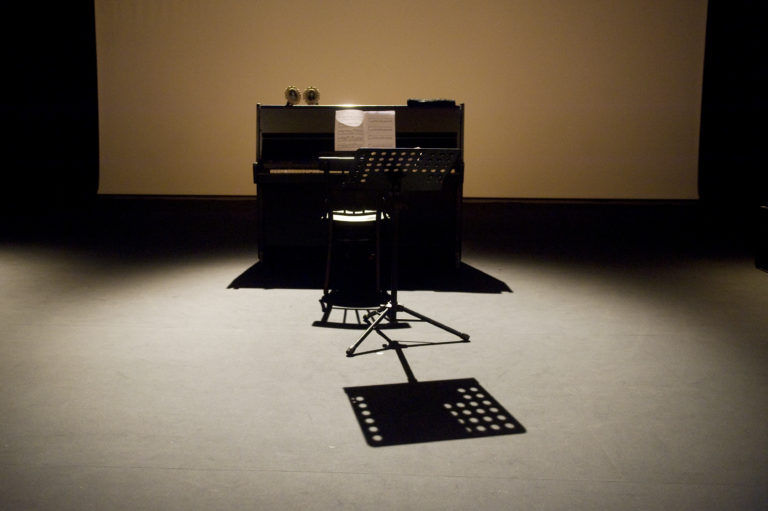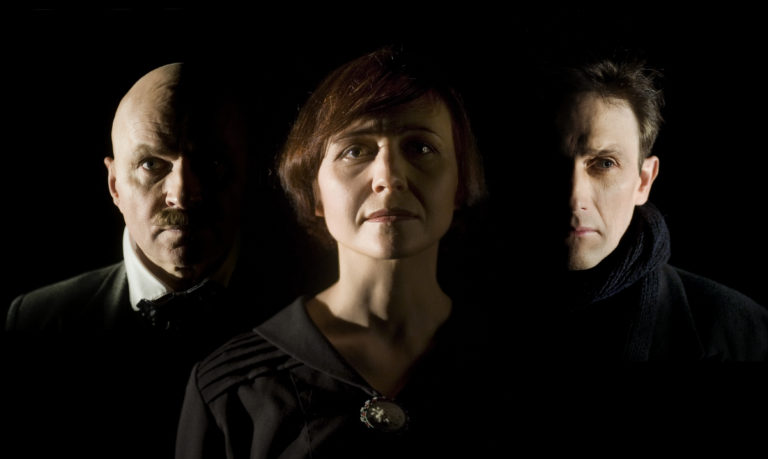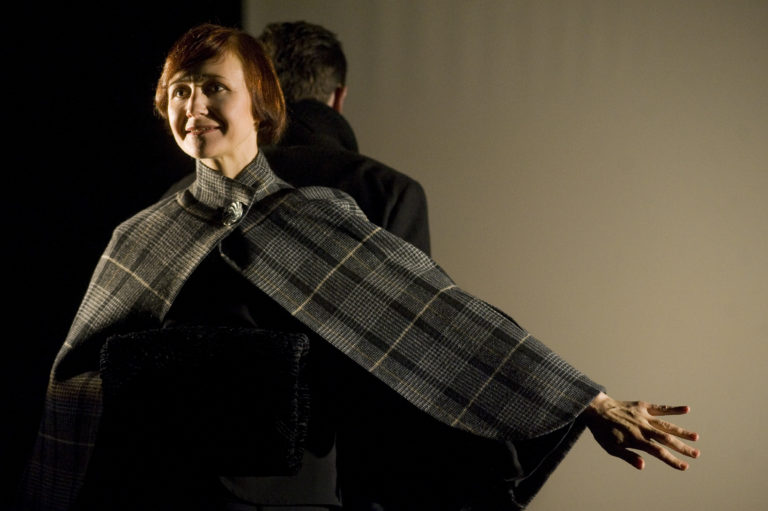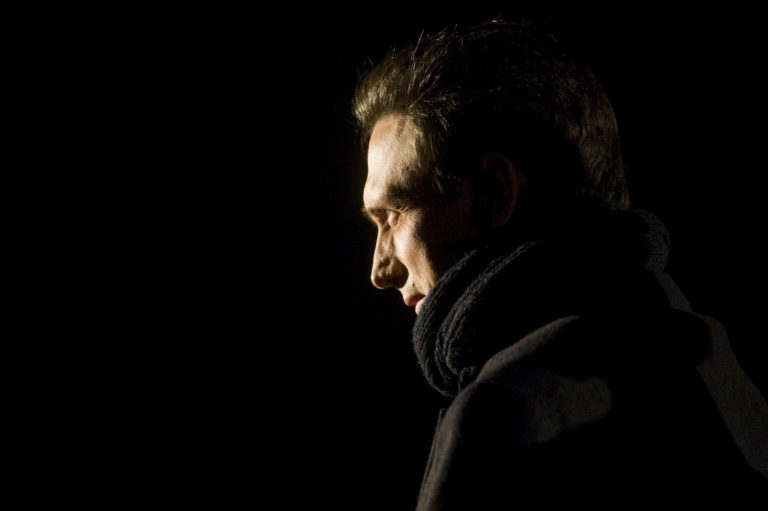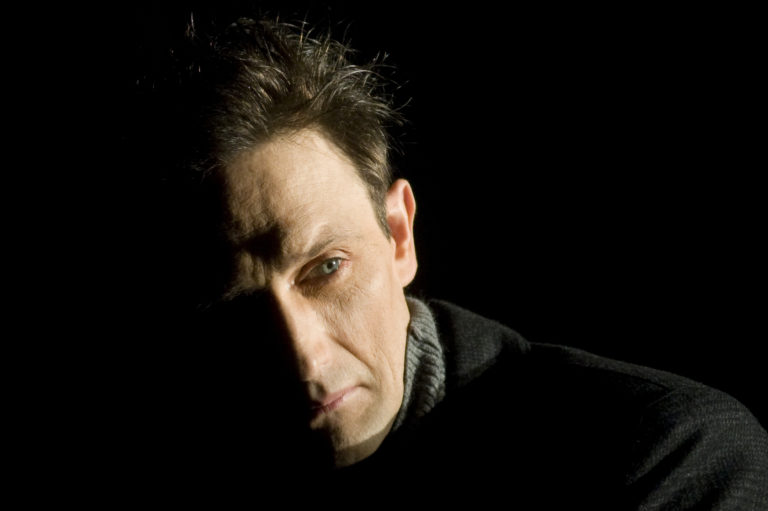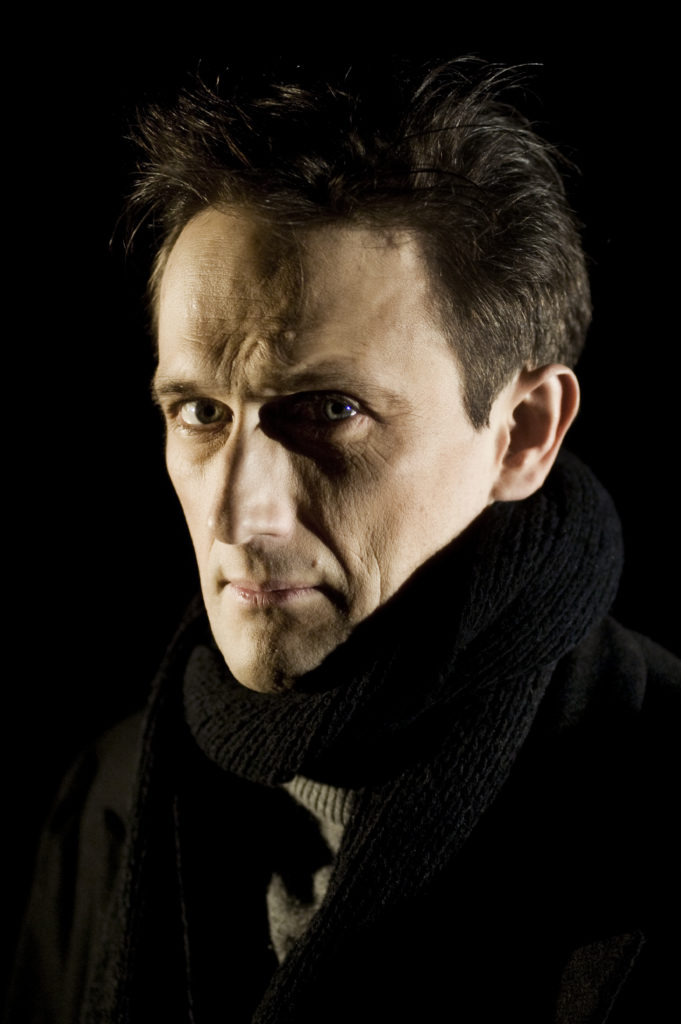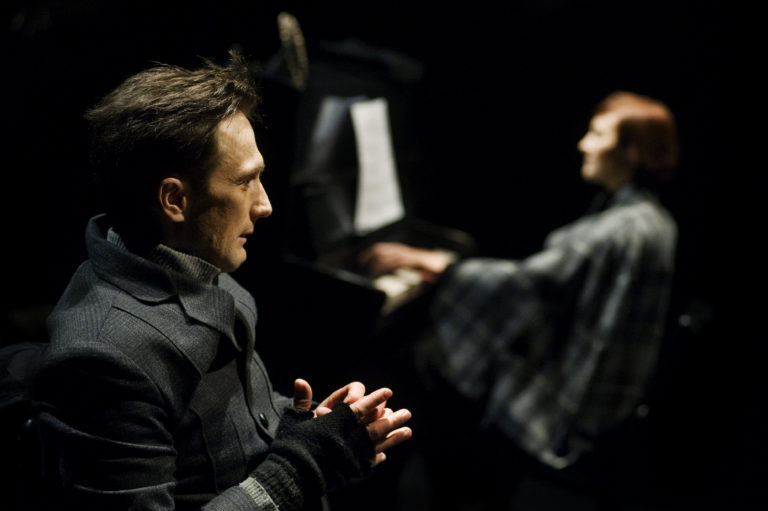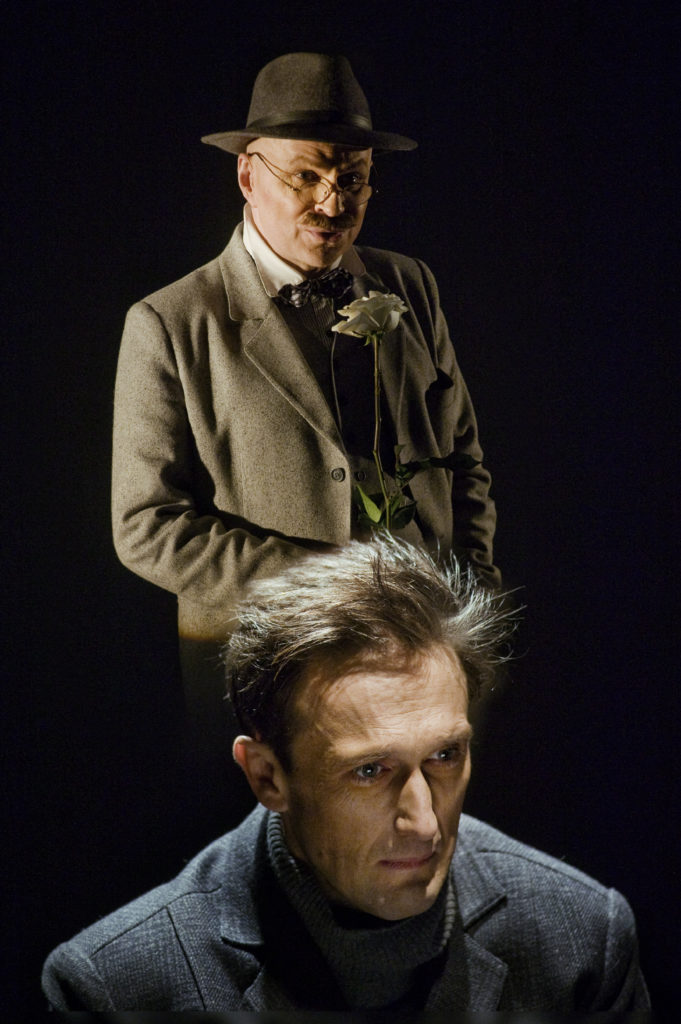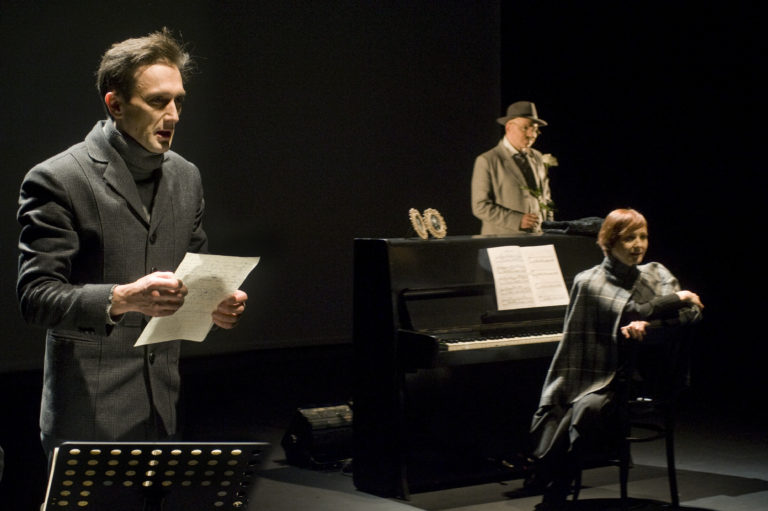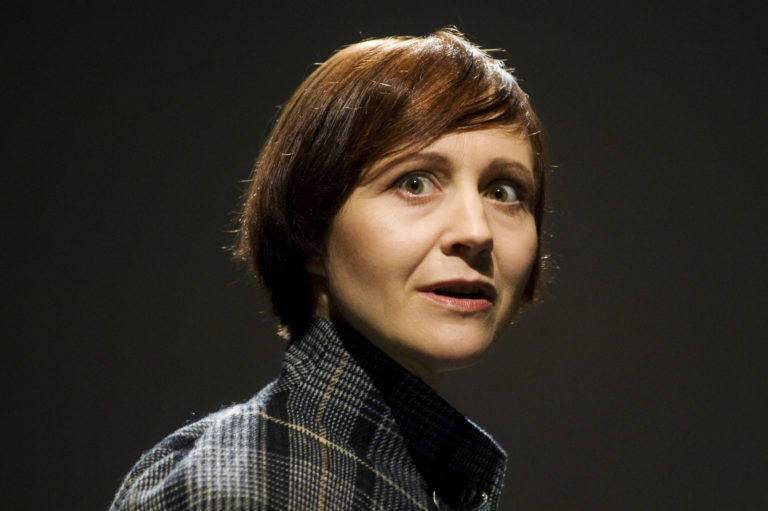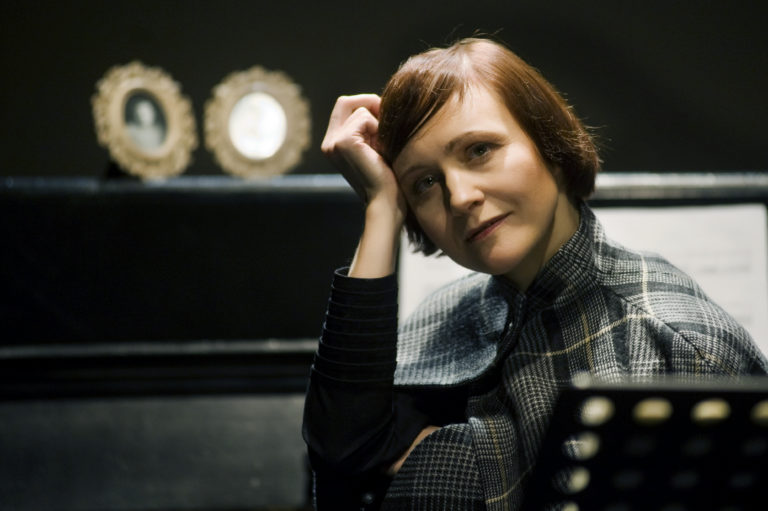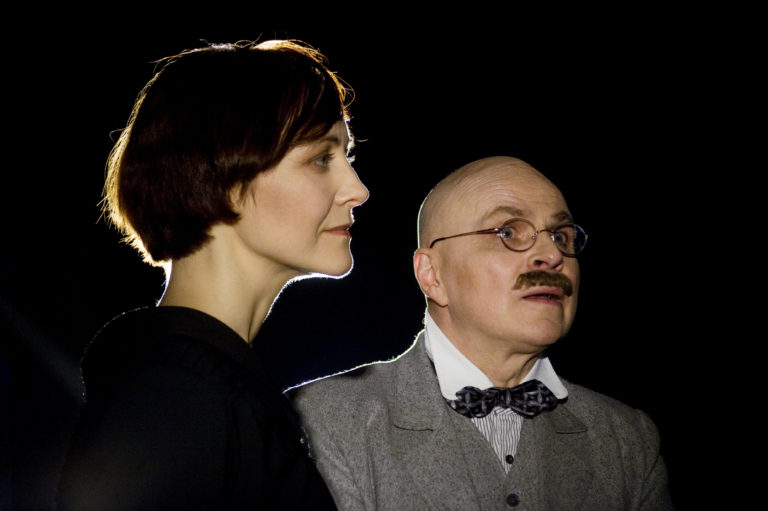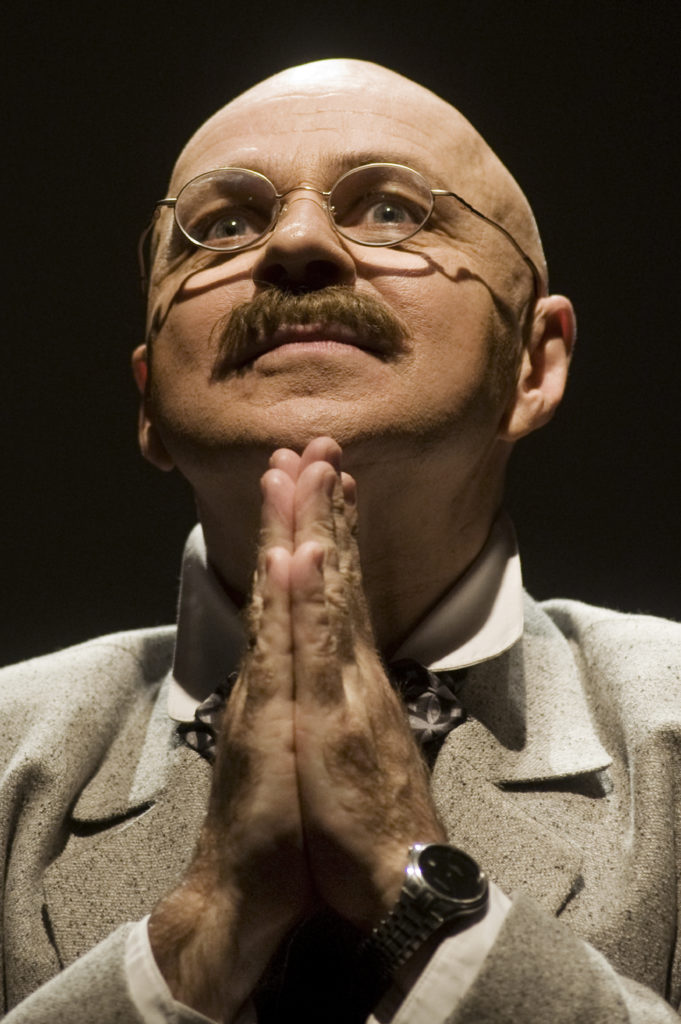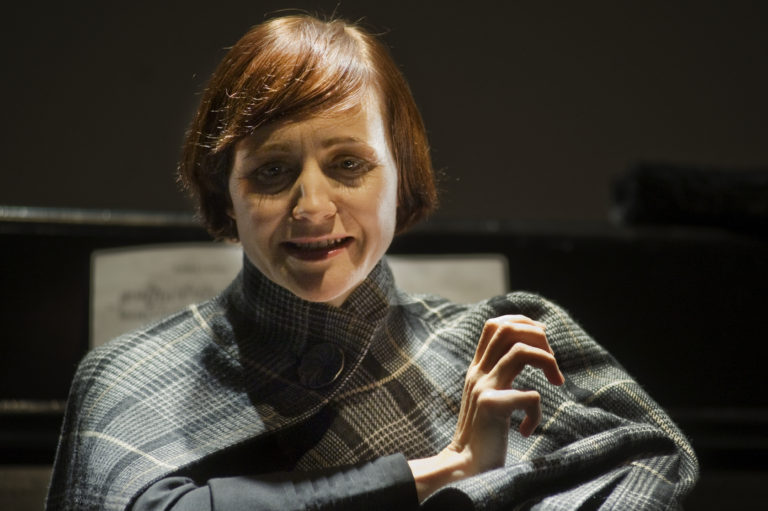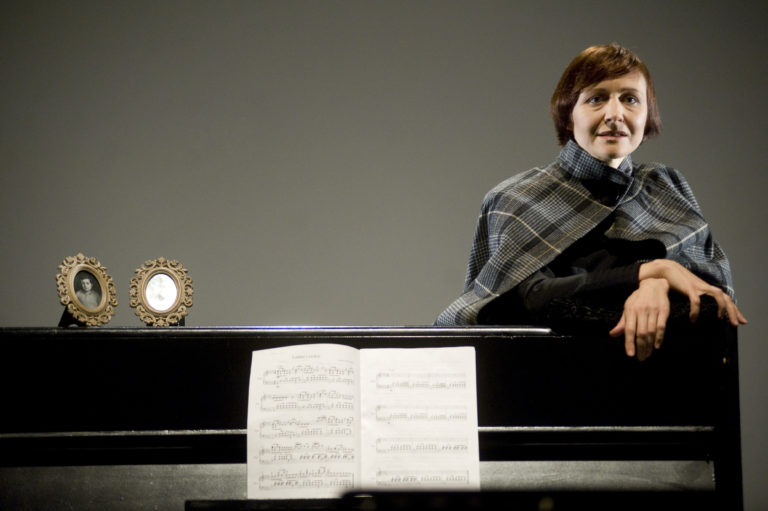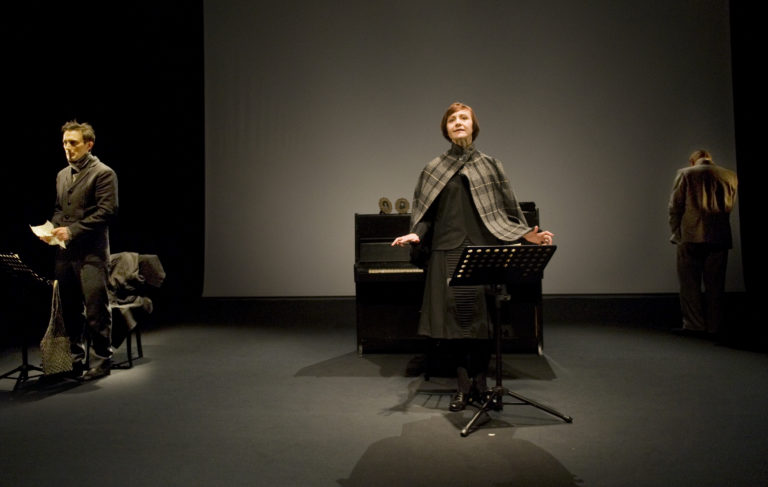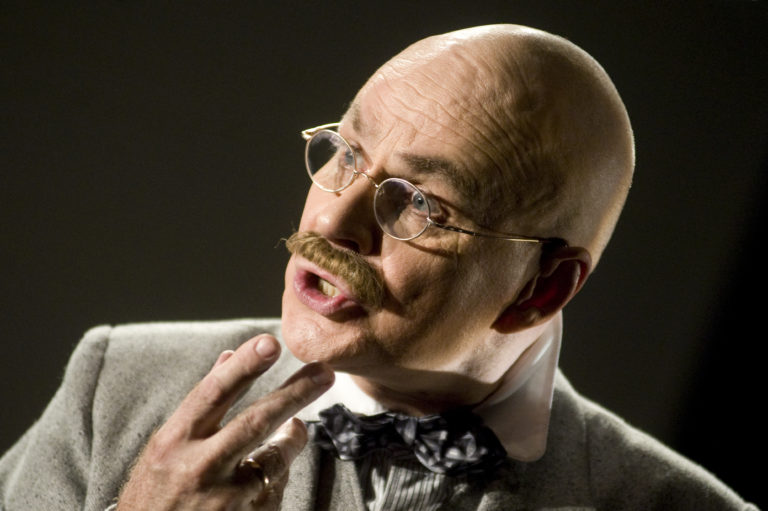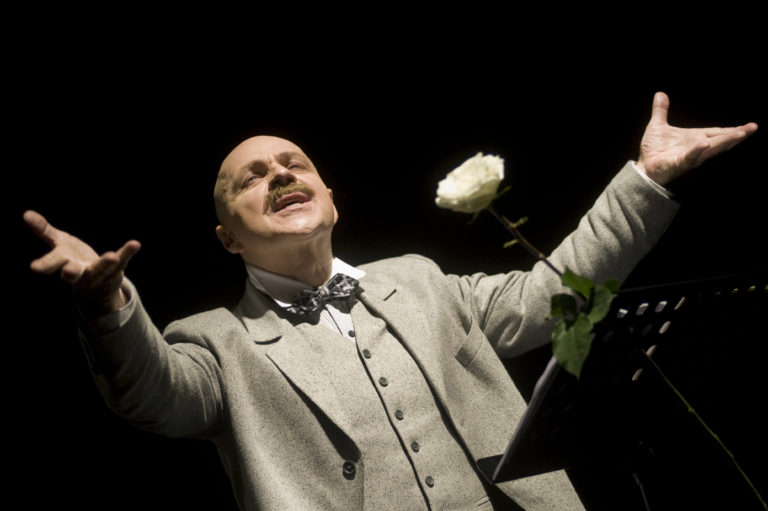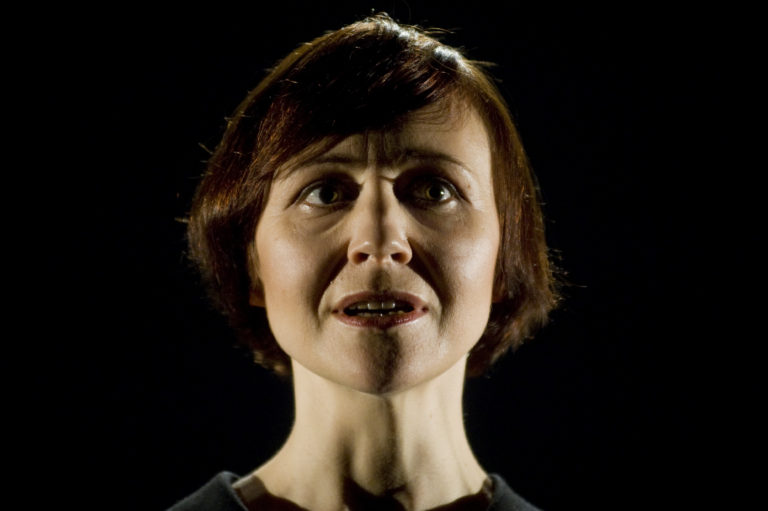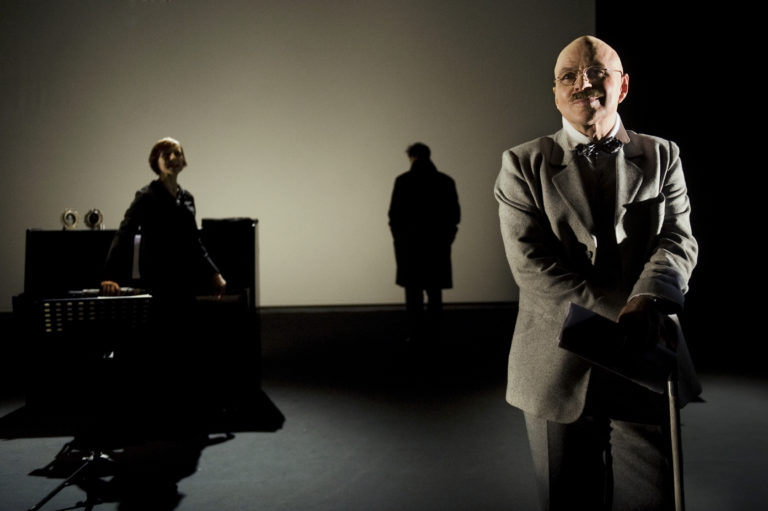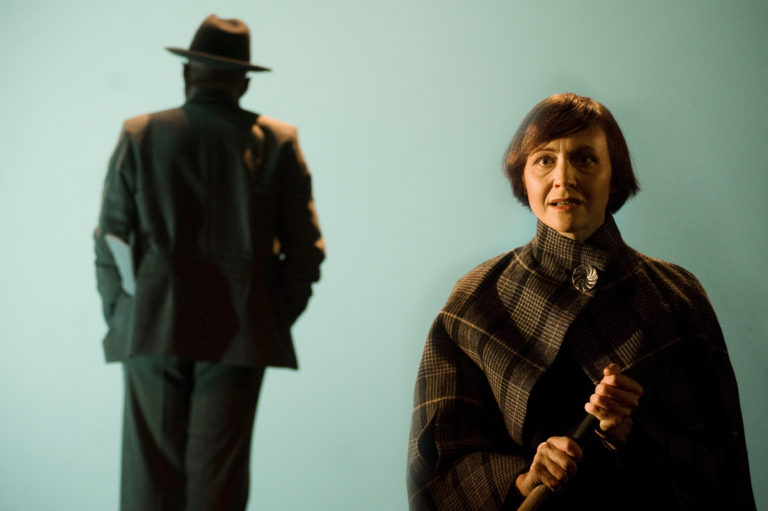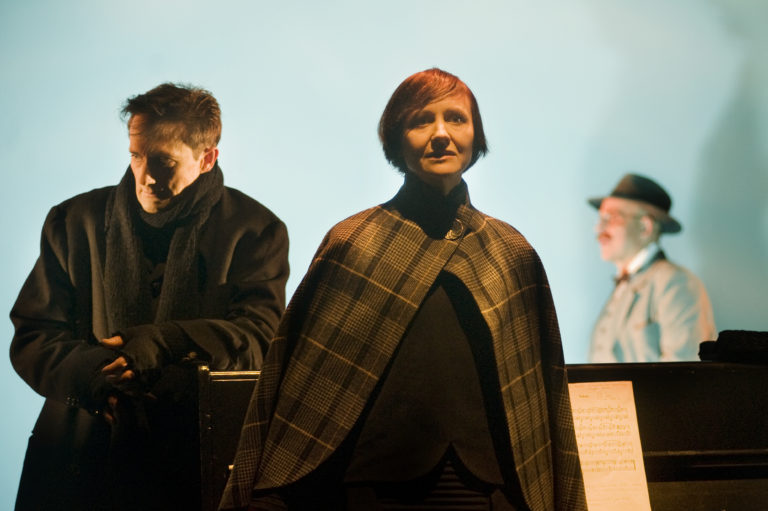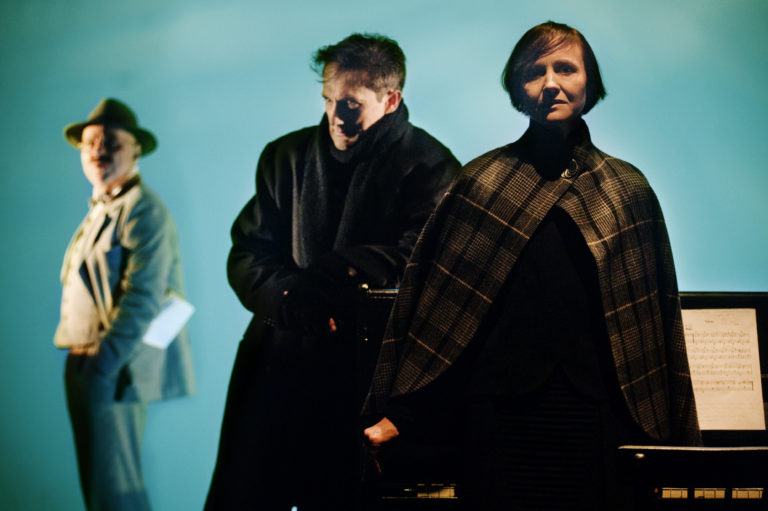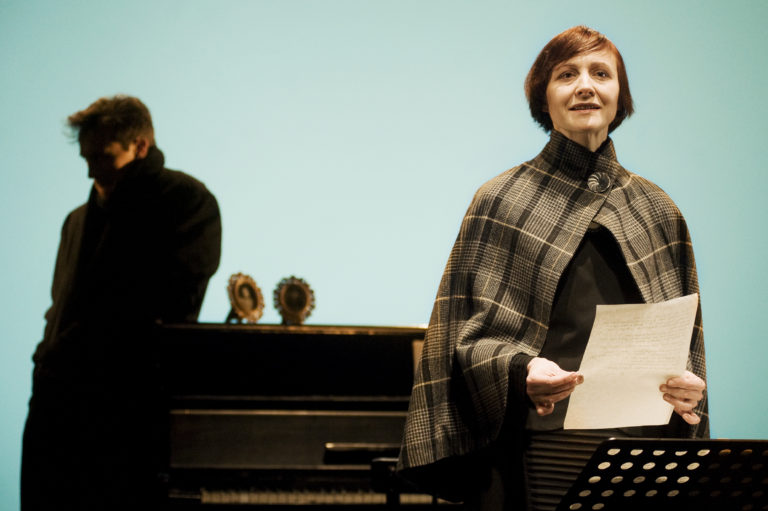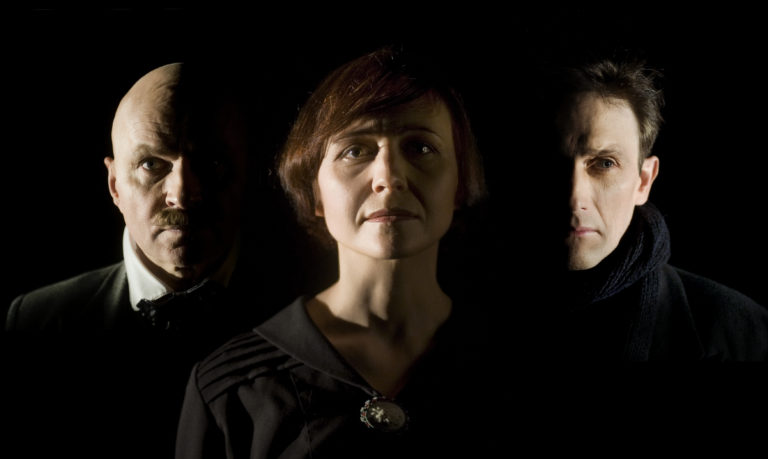
One act performance based on letters and poetry by MARINA TSVETAEVA, RAINER MARIA RILKE and BORIS PASTERNAK
Author and Director – BIRUTE MAR
Composer – ANTANAS KUCINSKAS
Scenographer – INDRE PACESAITE
Cast:
Marina – BIRUTE MAR
Boris – ALEKSAS KAZANAVICIUS
Rainer Maria – VYTAUTAS ANUZIS
Duration: 1h 20 min.
Translated from Russian language by Birute Mar
The performance was previously created and shown on the Small Stage of the Lithuanian National Drama Theatre. The premiere of the renewed performance at the Solo Theatre was in 2020.
…
The creation of the play “Letters to Nowhere” was inspired by unique literary texts: 20th-century letters of the classics Rainer Maria Rilke, Marina Tsvetaeva and Boris Pasternak during the period of 1922-1927. The intersection of the lives of the three writers coincided with their creative uplift as well as the tragic 20th-century historical twists. According to literary historians, the “novel of letters” by R. M. Rilke, M. Tsvetaeva and B. Pasternak written in 1926 is one of the most interesting 20th-century examples of the epistolary genre in the world literature.
In the mid-1930s, Tsvetaeva lived in Paris, Pasternak in Moscow, and Rilke in Switzerland on Lake Geneva. In this triangle that stretches for thousands of kilometres, three geniuses of the literature of the last century experience great spiritual tension and romantic longing, hunger for unsaturated love. It is a peculiar stage of their lives, a creative uplift, an intense spiritual fire which power can be seen in the letters, and reflections of life. Marina is the hottest flame of joint fire. She keeps repeating Rilke’s words: “We touch each other. How? With wings.”
For R. M. Rilke, who spends his days in monastic loneliness, Marina is like a breath of fresh air. A divorcee who almost lost touch with his family, still a young poet who is already very tired of life. Marina’s letters and the poems she sent him are vividly reminiscent of his visits to Russia (1899-1900). This shows both their understanding and spiritual closeness. It is a formula of life which is elevated, poetic, yet insurmountable in earthly attraction. Marina would often mention the possibility of dating which was emphasised in her poems and prose of life: “Will he have enough money for both of us?” What will she rent for their date? A room? A house? And suddenly an unexpected message – Rilke passed away.
Rilke died just before the New Year, barely fifty-one, receiving a royal gift from destiny in the last years of his life – confessions of the great Russian poets full of love and poetry, thus responding to her own inner anxiety.
BIRUTE MAR:
“Reading the notes of historical personalities and creators, I discover a unique possibility of stage interpretation – the dramaturgy of life, which seems to be unmatched by any ingenuity. The letters of M. Tsvetaeva, R. M. Rilke and B. Pasternak, the geniuses of world literature, which became the basis of the play, testify that there is another reality – a reality of creation, spirit, in which it is possible to experience a “novel” that no playwright would seem to come up with. And even if they invented, they would not find such authentic words to testify to the feelings of the heroes as the poets M. Tsvetaeva, R. M. Rilke, B. Pasternak discovered in their letters.
At the same time, these works of poets of the 1930s are a document of a painful and complex era, thoughts about their time, society, the meaning of creation and being. Pasternak lived in revolutionary Moscow, poor Tsvetaeva emigrated to Paris, Rilke spent his last years in the sanatorium in Switzerland. Three destinies, suddenly intertwined and lit up by a flame of passion and creativity. Letters of poets capable of elevating the feelings experienced in the world of everyday life and prose to the heights of great literature, radiating the energy of a unique being and sharing the painful path of the creator.
I think that the theme of the performance resembles our times: the noise of everyday life, in which completely different words and ideas are heard loudly, and the creation which asserts eternal values remains in silence. And silence must speak soon.
By the way, due to M. Tsvetaeva’s will, letters were published only half a century after the poet’s death…
I would like the axis of the performance to become the word, which in today’s theatre, unfortunately, often remains on the margins. A word that is a creative power and capable of capturing and witnessing the full spectrum of human experiences and feelings.”


